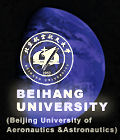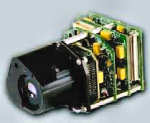 BIS released today a document entitled “Defense Industrial Base Assessment: U.S. Imaging and Sensor’s Industry.” This report, requested by the Army in May 2005, comes almost a year late from the delivery date of December 2005 originally requested by the Army. Notwithstanding the lengthy delay in issuing the report, it contains few surprises.
BIS released today a document entitled “Defense Industrial Base Assessment: U.S. Imaging and Sensor’s Industry.” This report, requested by the Army in May 2005, comes almost a year late from the delivery date of December 2005 originally requested by the Army. Notwithstanding the lengthy delay in issuing the report, it contains few surprises.
The report is based on a survey sent out by BIS to 106 participants in the imaging and sensor industry. That survey data was augmented with site visits, attendance at industry conferences, interviews with industry participants and consultation of other studies of this industry.
According to the report, global demand for imaging and sensing products has been increasing, including demand for uncooled thermal imaging devices. Uncooled devices are smaller, less expensive and less susceptible to damage but offer lower resolution than their cooled counterparts. The uncooled devices are more often used in civilian applications.
Notwithstanding the increase in demand for uncooled devices, U.S. industry’s share of these exports has been declining. The report notes that industry participants attribute this decline to less robust export controls imposed on uncooled thermal imaging devices by other countries. The report further noted that 13 of the survey respondents had export licenses denied for imaging equipments and that other respondents indicated that certain contracts were not bid on given the likely denial of an export license.
As a result, the report concludes that U.S. export controls on uncooled thermal imaging devices should be modified. No specific recommendation is made for how they should be modified. However, the Report, in describing changes proposed by survey respondents, stated:
A consensus among U.S. companies producing or considering the production of uncooled products offshore is that changing the controls of uncooled cameras from Regional Stability 1 (RS1) to Regional Stability 2 (RS2) would likely result in bringing back current production or foregoing future offshore production plans.
Changing the controls on uncooled thermal imaging devices from RS1 to RS2 would permit unlicensed exports to a number of countries including countries in the European Union, most Eastern European countries, Turkey, Japan, New Zealand and Australia. Even if BIS does loosen controls in such a fashion, second and third generation uncooled thermal imaging devices will still need a DDTC license if they are not part of a commercial system.

 Posted by
Posted by  Category:
Category: 

 With each export violation for an item on the Commodity Control List, there is always the possibility that not only will the exporter have BIS to deal with, but also the freight forwarder and shipper will have an unpleasant encounter with the agency. This is a lesson that
With each export violation for an item on the Commodity Control List, there is always the possibility that not only will the exporter have BIS to deal with, but also the freight forwarder and shipper will have an unpleasant encounter with the agency. This is a lesson that  Earlier we
Earlier we  On September 18, BIS entered an
On September 18, BIS entered an 


